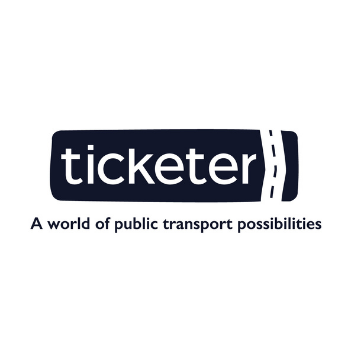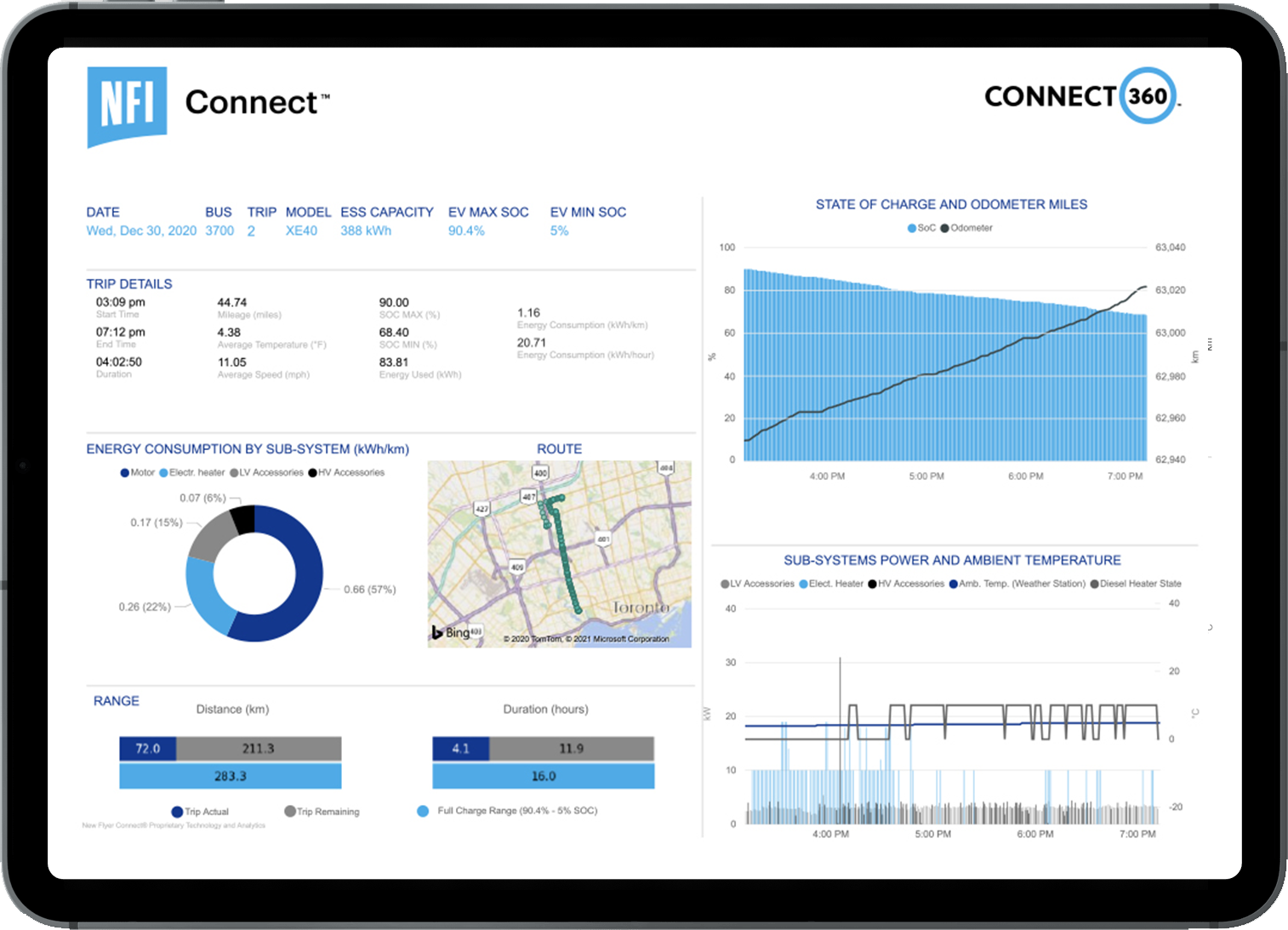In a week where all media attention was on world leaders gathering at COP26, we were delighted to host a panel discussion on how we, as an industry, can come together to build sustainable transport networks.
 Our Ticketer Group mobility expert Antonio Carmona kicked off the webinar with a stark reminder of the findings from The Intergovernmental Panel on Climate Change (IPCC). As the official United Nations body for assessing the science related to climate change, the IPCC believes that CO2 emissions are the biggest driver of climate change. This naturally puts a spotlight on transportation, both private and public, as potential contributors to these emissions.
Our Ticketer Group mobility expert Antonio Carmona kicked off the webinar with a stark reminder of the findings from The Intergovernmental Panel on Climate Change (IPCC). As the official United Nations body for assessing the science related to climate change, the IPCC believes that CO2 emissions are the biggest driver of climate change. This naturally puts a spotlight on transportation, both private and public, as potential contributors to these emissions.
Our four panellists shared insights from their perspective on this important conversation, discussing what can be done to raise awareness.
The Panellist of Speakers:
- Rebecca Kite (Confederation of Passenger Transport)
- Chris Hillcoat (Solent Transport)
- Anthony Prior (The Big Lemon)
- Solveig Ellila Kristiansen (Ticketer Group)
Solveig Ellila Kristiansen talked passionately about the need for us all to contribute to a greener future. Buses in particular play an important role in achieving this and in fact one bus is able to replace up to 40 cars on the road. So how do we change travel behaviours and get more people to choose bus travel? Reliability, efficiency and ease of use will help convert more people to public transport, and we believe innovation and digitalisation are key to this.
Passengers want to be well informed and in control of their entire journey – from door to door – and a wide range of technology solutions are starting to revolutionise the operation of buses in a way that responds to these customer needs.
Many trends were accelerated during the pandemic, for example touch-free travel through technologies such as contactless payment. Demand also grew for capacity information, as operators looked to ensure social distancing.
We’re seeing customers roll-out technological solutions that offer not only eco-benefits but also financial rewards. For example, real-time route planning software helps operators to ensure buses are not running empty or unnecessarily, carbon footprint reporters and passenger counting solutions support route optimisation, and competitive eco-driving solutions incentivise drivers to operate buses in a way that lowers fuel consumption and carbon emissions.
In addition to this, the use of data to improve the flow and capacity of public transport systems, has also encouraged more operators and local authorities looking at the commercial viability of Demand Responsive Transport to connect communities in a way that hadn’t been fully considered before.
Solveig Ellila Kristiansen, Ticketer Group CCO, said:We should all have a voice on this. We clearly have shared ambitions and missions. When looking back at 2021 and 2022 – we want to be proud to say, we were part of that change.
Next up was Rebecca Kite, who underlined the fact that a sustainable bus network is more than having a low, or zero emission, bus fleet. This is only part of the solution. She argued that we also need to increase the number of passengers on the bus. If everyone switched just one car journey to bus once a month, there would be a billion fewer car journeys, and this would save 200 million tons of CO2 per year. Journey times are key for getting people on the bus and local planning authorities should work on solutions providing less congestion. The same applies for the need to have ‘bus only’ lanes, Traffic Light Priority for buses, and the offering of ‘park and ride’ spots located on the outer city borders. With these kind of solutions in place, buses will become a competitive option to car usage, through reduced journey times. According to Rebecca, operators are showing commitment to work towards zero emission buses and a willingness to take further measures in order to reduce emissions overall. To support operators in achieving their ambitions, governmental support will also need to be in place, Rebecca explained.
Rebecca Kite, Policy Manager at Confederation of Passenger Transport UK, said:The industry now really needs a very strong, clear roadmap on how the Prime Minister’s targets are going to be delivered and a long-term commitment on funding so that operators have certainty, allowing to plan and invest.
Chris Hillcoat added his vision by showing us the advantages of ‘Future Transport Zones’, for which Mobility as a Service (MaaS) and sustainable logistics, are the two main pillars. MaaS enables passengers to choose from different kinds of transport, that are easily accessible and paid for. Think of the usage of bike sharing, e-sooters and Dynamic Demand Responsive Transport (DDRT). MaaS is of great importance, argues Chris, as this is how we can commit to the ‘transport for all’ concept, promoting equality and inclusion. The MaaS network should be combined with sustainable urban logistics, such as drone logistics in transporting supplies between hospitals, and macro and micro consolidation. Developing MaaS solutions also involves behavioural changes and research partnerships. Chris showed us that Solent has seen incredible numbers on the usage of e-scooters and bike-sharing in the past 10 months, where 1,760 e-scooters have already shown to replace 41% car and taxi rides. Should MaaS be run by the private or the public sector? In Chris’ opinion, the public sector needs to be in the driving seat. From a public sector perspective, the authorities own those relationships with the transport operators, that builds trust, and that is a vital element in putting together that consortium of all those different players that are part of MaaS.
Chris Hillcoat, Programme Lead for Future Transport Zone Personal Mobility at Solent Transport, said:We think that by 2024, with having a bike share project including almost 1,000 bikes on the road, 29% of the bike trips made would otherwise have been by car. This equates to 250 tons CO2 emission saved.
Last but not least, Anthony Prior provided another valuable perspective on the topic, with The Big Lemon setting an example as a sustainable, community driven organisation, that is close to having a fully zero emission bus fleet by the end of the year. The pillars to achieving this goal are innovation, community and sustainability. Bringing together different modes of sustainable transport promotes behaviour change, removes barriers and creates friendly ways of transport options for everyone. To achieve this, Anthony argues that a greater level of partnership is needed, alongside knowledge sharing. By sharing experiences and best practices, we can pave the way for other local authorities and operators. On the question ‘what local authorities could do to support the green agenda,’ Anthony replied that authorities currently support only 5% to sustainability and 5% to social impact in their procurement procedures, so there is more that can be done.
Anthony Prior from The Big Lemon, said:To help promote sustainable operations for public transport operators, authorities should address their current weighting in procurement processes and increase the weighting of sustainability and social impact.
The webinar reassured us that there is an eagerness in the industry to move forward and to contribute to a greener and more sustainable future. There will be challenges along the way, but there is already a lot that we can learn from one another. We hope that with us all coming together on the webinar, we have contributed our small part to precisely that.
Read further insights about sustainable bus transport here.
This article was originally published by Ticketer.


